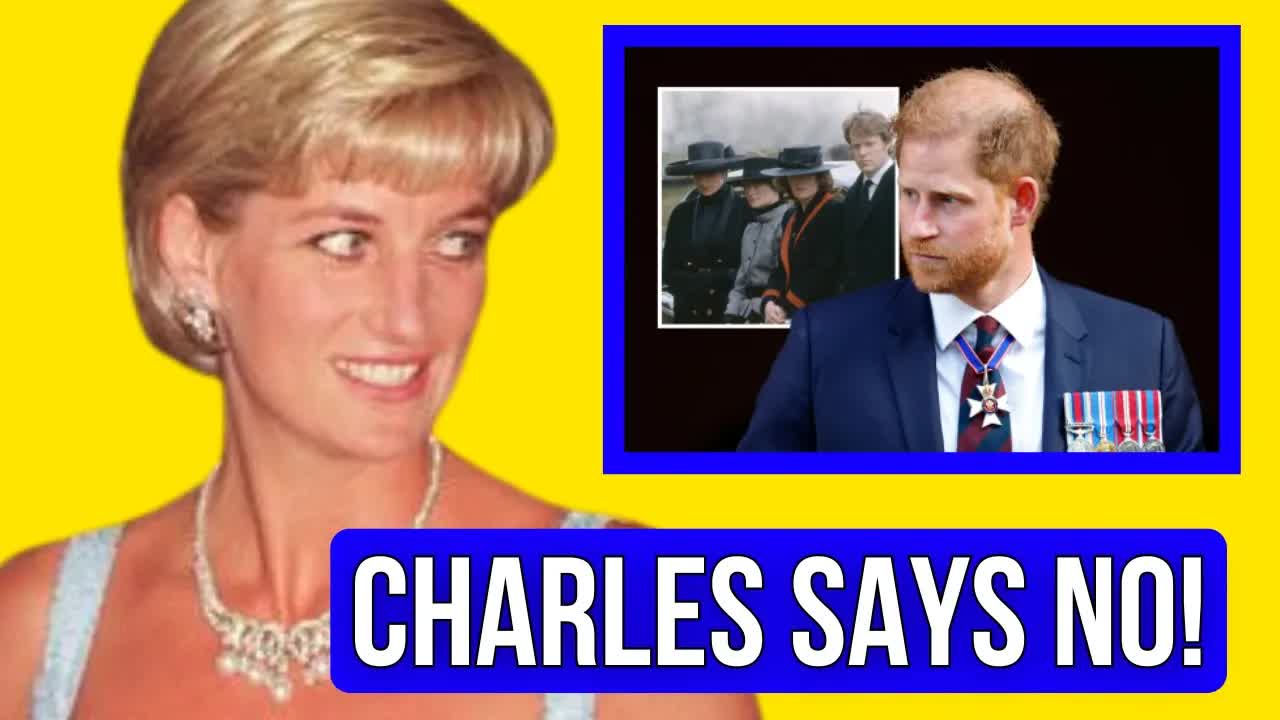When Prince Harry and Meghan Markle exchanged vows in May 2018, the event was nothing short of a global spectacle.
Here was a British royal marrying an American actress, marking what many saw as a refreshing new chapter for the monarchy.
However, behind this seemingly enchanting fairytale, a noticeable tension simmered, largely attributed to the apprehensions voiced by Princess Diana‘s brother, Charles Spencer.
Charles Spencer’s discomfort with this union likely stems from the complex legacy left by his sister, Diana.
She was more than just a cherished royal figure; she embodied compassion and defiance against the entrenched traditions of the British royal family.
Diana’s willingness to confront royal protocols, her tumultuous relationship with the media, and her tragic end left an indelible mark on public consciousness and shaped her family’s perspective on royal affairs.
The Spencer family, steeped in British aristocracy, has consistently upheld traditional values.
Diana’s marriage to Prince Charles was fraught with infidelity, relentless media scrutiny, and a glaring absence of support from the royal institution.
Given this history, it’s understandable that the Spencers harbored reservations about Meghan—an outsider with a mixed-race background and a Hollywood past, both of which were unprecedented in royal circles.
From the moment Meghan entered the royal family, reactions were mixed.
While many hailed her as a breath of fresh air, others viewed her as a potential disruptor.
The intense media spotlight that followed her arrival mirrored the treatment Diana faced, likely amplifying the Spencer family’s concerns.
They worried that Meghan might endure similar hardships, especially given the media’s obsession with her every move and her American roots.
For Charles Spencer, these worries were deeply personal.
Having seen the toll royal life took on his sister, he may have feared that Meghan would experience a comparable ordeal.
The public also noted the striking similarities between the two women—both were charismatic and compassionate, yet both found themselves navigating the treacherous waters of a conservative institution where they felt like outsiders.
The public reaction to Harry and Meghan’s marriage revealed deep societal divides in Britain.
Younger generations tended to embrace the couple, viewing them as a modernizing force within the monarchy.
Conversely, significant criticism emerged, often rooted in racism and classism, branding Meghan as unfit for royal life.
The media’s relentless focus on her biracial identity and her previous acting career only served to deepen the divide, alienating her from more traditional segments of society, including the Spencer family.
As Harry and Meghan’s relationship with the media and the royal family soured, Charles Spencer’s initial concerns appeared increasingly valid.
Their decision to step back from royal duties in 2020 intensified public curiosity and scrutiny, casting Meghan’s struggles in a light reminiscent of Diana’s.
The narrative began to frame Meghan as a more radical version of Diana, one willing to break free from the constraints of royal life altogether.
Ultimately, the marriage of Prince Harry and Meghan Markle ignited broader discussions about race, class, and the future of the British monarchy.
For Charles Spencer, this union represented not only a personal concern for his nephew but also highlighted the ongoing struggle between tradition and modernity within the royal family.
As the world continues to observe Harry and Meghan’s journey, the enduring legacy of Princess Diana casts a long shadow.
Her influence shapes not just the public’s perception but also the private sentiments of those who knew her intimately.
The complexities surrounding this royal marriage serve as a reminder of the intricate dance between love, legacy, and the weight of tradition in a rapidly evolving society.










